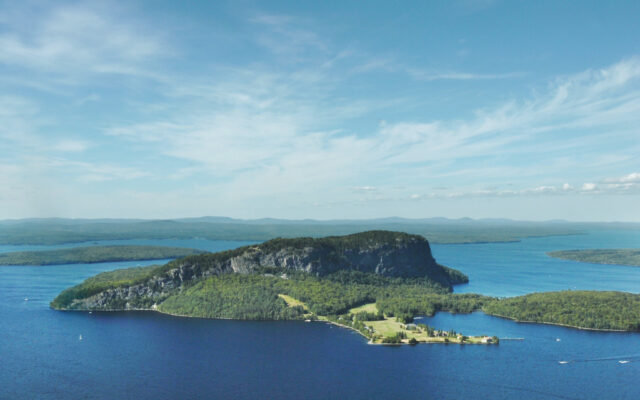
Mills Administration announces first call for proposals since 2017 for Land for Maine’s Future Program
AUGUSTA — The Mills Administration announced a call for proposals for conservation and recreation projects through the Lands for Maine’s Future Program.
This LMF funding opportunity is the first since 2017 and is the direct result of Gov. Janet Mills’ proposing and lawmakers approving $40 million over four years to replenish the program in the most recent biennial budget. LMF is the state’s primary funding vehicle for conserving land for its natural and recreational value
“As we push full speed ahead on our economic recovery, now is the time to conserve in perpetuity the natural resources that form the backbone of our rural economy,” said Gov. Mills. “To sustain our heritage — our farms, forests and working waterfronts, saving them from development and making sure they are forever available to fishermen, families and farmers of Maine – I am excited to issue the first call for proposals since 2017 for the Land for Maine’s Future Program. Preserving and protecting our cherished lands is one of our highest callings, and I encourage all who are interested to consider the program.”
“The LMF Program has a lengthy history of protecting Maine’s natural resources, and with this new infusion of funding, will continue advancing its important work on behalf of the people of Maine,” commented DACF Commissioner Amanda Beal. “This call for proposals will bring forth the next generation of land conservation, including supporting our state climate objectives.”
“The LMF board and program staff are committed to making funds available to our applicant community as quickly as possible while maintaining a fair and equitable process that focuses on targeted conservation priorities,” LMF Director Sarah Demers.
“This opportunity to invest 40 million dollars in Maine’s special lands and waters and to work with our amazing conservation partners is a welcome and exciting challenge. Maine people have a long-standing record of supporting the LMF Program, and we all appreciate the leadership of both Gov. Mills and the Legislature for making the protection of our state’s natural resources a top priority,” LMF board member Barbara Trafton.
“Maine has made considerable progress in conserving land but there is much more to do. Land for Maine’s Future assures that we continue to make progress conserving what we all know and love for future generations,” LMF board member Don Kleiner.
LMF project awards include the conservation of working forests, farms, and commercial waterfronts, public access to our woods and waters, and the protection and management of wildlife.
Several program priorities and practices were formalized through the budget bill, including establishing a Community Conservation funding category to replace the local and regional significance categories. Projects addressing climate change and deer habitat will have priority. Additionally, it is now a statutory requirement that, except for working farms and working waterfronts, lands acquired with LMF funds may not prohibit public access, hunting, fishing, and trapping, which has been the practice since the program started more than 30 years ago.
LMF is the State of Maine’s primary funding vehicle for conserving land for its natural and recreational value. The program was established in 1987 when Maine citizens approved a bond to fund $35 million for the purchase of lands, and the program’s priority is to conserve Maine landscape, recognizing that working lands and public access to these lands is critical to preserving Maine’s quality of life.
Since then, LMF has conserved nearly 604,000 acres of land, more than half of which – 333,425 acres – has been working lands. This includes 41 farms and 9,755 acres of farmlands and 26 commercial working waterfront properties, along with 1,272 miles of shorelines of rivers, lakes and ponds, 58 miles of coastline, and 158 miles of former railroad corridors for recreational trails.
Prior to this $40 million infusion, the fund was nearly depleted. Now that it is replenished, LMF can continue its robust conservation efforts, leveraging federal funding enacted last year through The Great American Outdoors Act, which is expected to send tens of millions of dollars to the state for protection and conservation efforts.
Full details about the types of projects supported, who is eligible to apply, the application process, and the 2021 LMF Proposal Workbook are available now on the LMF webpage (https://www.maine.gov/dacf/lmf/applying.shtml).